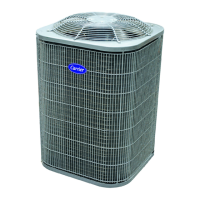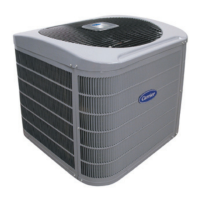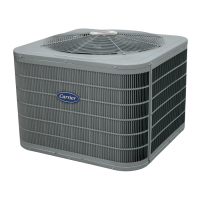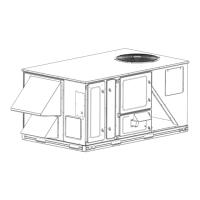CONNECTING REFRIGERANT PIPING LINES
17.13 AIR PURGING OF INDOOR UNIT AND REFRIGERANT PIPING LINES
USING VACUUM PUMP
NOTES
NEVER use the unit refrigerant to purge the connecting pipes and indoor unit.
NEVER use the system compressor as a vacuum pump.
For the vacuum pump, check oil is filled up to the specified line of the oil gauge.
The air in the indoor unit and in the refrigerant piping must be purged. If air remains in the
refrigeration piping, it will have undesirable effects as indicated below :
Pressure in the system rises.
Operating current rises.
Cooling efficiency drops.
Moisture in the refrigerant circuit may freeze and block capillary tubing.
Water may lead to corrosion of parts in the refrigeration system.
Be sure, using a torque wrench to tighten the service port cap ( after using the service port ),
so that it prevents the suction leakage from the refrigeration cycle.
No additional refrigerant charge has been provided in outdoor unit for air purge.
Air purging procedure using vacuum pump
Air purging procedure using vacuum pump
Connect the vacuum pump to the charge set’s centre hose.
Evacuate for approximately one hour.
Confirm that the gauge needle has moved toward -0.1 Mpa (-76 cmHg)
[vacuum of 4 mmHg or less].
Close the valve ( Low side ) on the charge set, turn off the vacuum pump, and confirm that the gauge
needle does not move ( approximately 5 minutes after turning off the vacuum pump ).
Disconnect the charge hose from the vacuum pump.
Vacuum pump oil, if the vacuum pump oil becomes dirty or depleted, replenish as needed.
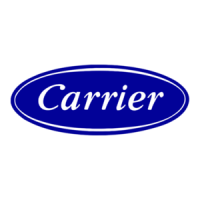
